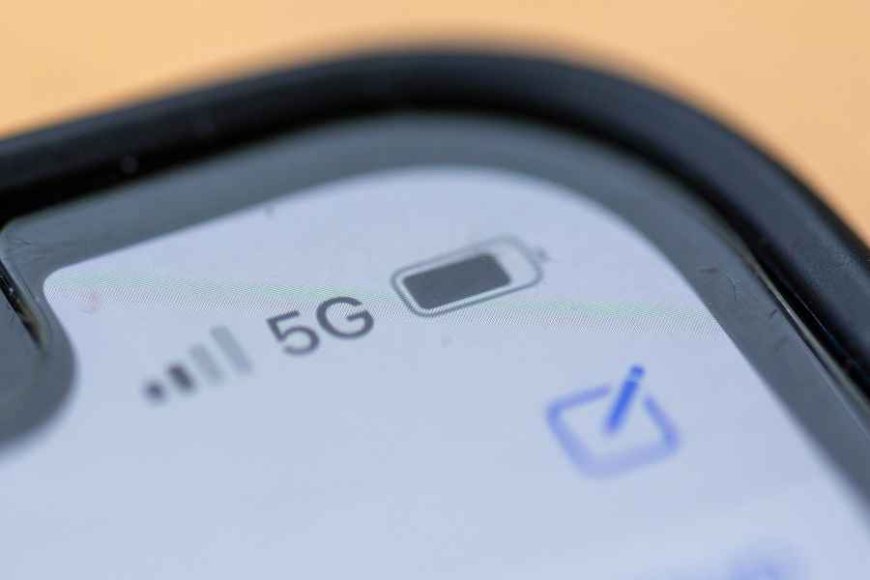Unleashing the Power of 5G-Enabled Smartphones
In the fast-paced world of technology, the race to harness the potential of 5G connectivity has reached a fever pitch. 5G-enabled smartphones

In the fast-paced world of technology, the race to harness the potential of 5G connectivity has reached a fever pitch. 5G-enabled smartphones are at the forefront of this revolution, promising faster speeds, lower latency, and a world of new possibilities for users. In this article, we will explore the latest 5G smartphones, their availability, and the profound impact of 5G on mobile connectivity and user experiences.
The Rise of 5G Smartphones
The concept of 5G technology has been in the works for several years, but it's only in recent times that it has become a tangible reality for consumers. Smartphone manufacturers have been quick to jump on the 5G bandwagon, and today, there is a plethora of 5G-enabled smartphones available in the market.
Leading the pack is Apple's iPhone 12 series, which introduced 5G connectivity to millions of users worldwide. Samsung, another tech giant, has been aggressively promoting its Galaxy S21 series, featuring 5G as a flagship feature. These are just a few examples of the many 5G smartphones available today, with options across various price points and brands.
The Availability of 5G Networks
To fully leverage the capabilities of 5G-enabled smartphones, a robust 5G network infrastructure is essential. Fortunately, telecommunication companies have been investing heavily in expanding their 5G coverage. In major cities and urban areas, 5G networks are becoming increasingly prevalent, offering lightning-fast speeds and low latency.
Verizon, AT&T, T-Mobile, and other global carriers have been rolling out 5G networks in earnest. This expanded coverage not only benefits smartphone users but also sets the stage for the broader adoption of 5G in various industries, including healthcare, transportation, and entertainment.
The Impact on Mobile Connectivity
The advent of 5G brings about a seismic shift in mobile connectivity. Previous generations of wireless technology, like 3G and 4G, paved the way for mobile internet and app-driven lifestyles. Still, 5G takes this to an entirely new level.
With 5G, users can download large files, stream high-definition videos, and engage in online gaming with virtually no lag. This speed and reliability open doors to augmented reality (AR) and virtual reality (VR) experiences that were previously constrained by network limitations. Imagine exploring virtual worlds, attending immersive virtual concerts, or collaborating seamlessly in augmented workspaces, all from your 5G-enabled smartphone.
Enhanced User Experiences
5G is not just about speed; it's about redefining user experiences. One of the most tangible benefits of 5G-enabled smartphones is the ability to enjoy high-quality video calls and conferences without buffering or dropouts. This has become particularly crucial in today's remote work and virtual communication landscape.
Furthermore, 5G supercharges the Internet of Things (IoT). Smart home devices, wearables, and even autonomous vehicles can communicate faster and more reliably over 5G networks. This means your smart thermostat can respond instantly to temperature changes, your fitness tracker can provide real-time health data, and self-driving cars can navigate complex environments seamlessly.
Revolutionizing Healthcare
The impact of 5G extends far beyond entertainment and productivity. Healthcare is one sector set to undergo a radical transformation thanks to this technology. Remote surgeries, enabled by 5G's low latency and high bandwidth, will become more commonplace. Doctors can perform surgeries on patients located miles away, reducing the need for travel and increasing access to specialized medical care.
Telemedicine will also benefit from 5G, allowing patients to connect with healthcare providers for virtual consultations in high definition. Wearable health devices will transmit real-time data to doctors, leading to more accurate diagnoses and proactive healthcare.
A Greener Future
5G technology can also contribute to a more sustainable future. The low latency and high efficiency of 5G networks enable better energy management in various industries. Smart grids can optimize electricity distribution, reducing waste and emissions. Autonomous vehicles can communicate with traffic systems to minimize congestion and fuel consumption.
In agriculture, 5G-powered sensors and drones can monitor crops with precision, leading to more efficient resource use and reduced environmental impact. Overall, 5G plays a pivotal role in building a smarter and greener world.
Challenges and Considerations
While the promise of 5G is exciting, it's not without challenges. The rollout of 5G networks requires substantial infrastructure investments, and ensuring widespread coverage in rural and underserved areas remains a challenge. Additionally, concerns about privacy and security in an increasingly connected world demand careful consideration.
5G-enabled smartphones are the vanguard of a technological revolution that promises to reshape our lives in countless ways. With faster speeds, lower latency, and enhanced connectivity, 5G not only elevates our mobile experiences but also unlocks the potential for innovation in various industries. As 5G networks continue to expand, we can look forward to a future where connectivity knows no bounds, and the possibilities are limited only by our imagination.
